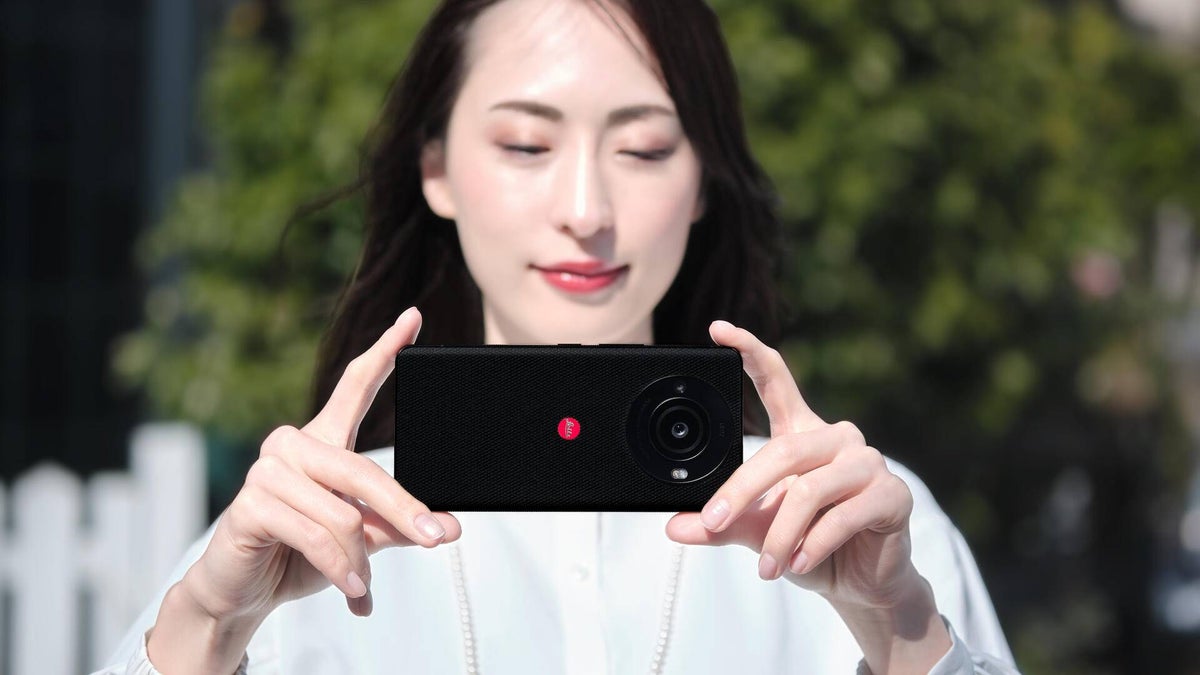A single rear camera and a Snapdragon 8 Gen 2: this phone will be pricier than the Galaxy S24 Ultra

How would you like to pay top dollar – probably more than $1500 – for a phone in 2024 that has a single rear camera and packs Qualcomm's 2022 Snapdragon 8 Gen 2 chipset?
Sounds great, right?
In return, you'd get a bright red dot. Yup, whenever you see "high price" and "a red dot" mentioned together, you can rest assured: that's Leica!
Leica is, of course, one of the best-known photography brands in the world. This German legend's cameras and lenses are pretty expensive. Leica's products are renowned for their exceptional build quality and minimalist design.
You've probably heard about Leica if you've interested in Huawei or Xiaomi – the former had a successful partnership with the German brand. After the US sanctioned Huawei several years ago, Leica moved on to a Xiaomi partnership, culminating in this year's Xiaomi 14 Ultra.
Despite being in the photography game since 1869, Leica released just two smartphones so far (both being rebranded Sharp Aquos models):
Now, there's a third one on the horizon, the Leica Leitz Phone 3. There isn't a price attached to it right now, but both previous Leitz phones were launched above the ~$1500 price tag mark. So, there isn't a single reason in the world to expect the Leica Leitz Phone 3 to be any cheaper than that. That's brutal, since the maxed-out flagship Galaxy S24 Ultra starts at $1299.
The newest Leica bijou phone was just announced in Japan and it's likely an exclusive for the Land of the Rising Sun.
Sounds great, right?
In return, you'd get a bright red dot. Yup, whenever you see "high price" and "a red dot" mentioned together, you can rest assured: that's Leica!
You've probably heard about Leica if you've interested in Huawei or Xiaomi – the former had a successful partnership with the German brand. After the US sanctioned Huawei several years ago, Leica moved on to a Xiaomi partnership, culminating in this year's Xiaomi 14 Ultra.
Now, there's a third one on the horizon, the Leica Leitz Phone 3. There isn't a price attached to it right now, but both previous Leitz phones were launched above the ~$1500 price tag mark. So, there isn't a single reason in the world to expect the Leica Leitz Phone 3 to be any cheaper than that. That's brutal, since the maxed-out flagship Galaxy S24 Ultra starts at $1299.
What's so special about it?
The Leitz Phone 3 brings pure joy – every day and every second – by capturing your personal moments in the highest quality images.
That's what the Leitz Phone 3's official product page says. This polished bad boy will also bring the following technical specs to the table:
This seems… well, uninspiring. It's not just that a 2024 premium device packs the Snapdragon 8 Gen 2. It's just that the aforementioned sensor (1-inch, 47.2MP) is most probably borrowed from the Leitz Phone 2.
- Operating system: Android 14
- Weight: About 209 g
- Display: 6.6-inch WUXGA+ (2730 x 1260 pixels) Pro IGZO OLED
- Main camera: 1-inch sensor, 47.2 MP resolution, 19mm equivalent focal length, f/1.9 aperture
- Selfie camera: 12.6 MP resolution, 27mm equivalent focal length, f/2.3 aperture
- Chipset: Snapdragon 8 Gen 2
- Memory: 12GB RAM, 512GB storage, microSDXC card is supported (up to 1 TB)
- Battery capacity: 5,000 mAh
This seems… well, uninspiring. It's not just that a 2024 premium device packs the Snapdragon 8 Gen 2. It's just that the aforementioned sensor (1-inch, 47.2MP) is most probably borrowed from the Leitz Phone 2.
Since it's 2024, the emphasis is on the software side of things. The Leitz Phone 3 is not an exception. Despite having just one camera on the back (no ultra-wide angle, no zoom snappers), its makers claim that it can simulate the look of three Leica M-branded lenses (in layman's terms, this is fancy stuff!):
This specially developed software engine simulates the look of the three most famous Leica M-Lenses: the Noctilux-M 1:1.2/50, Summilux-M 1:1.4/28 and Summilux-M 1:1.4/35. The exclusive “variable aperture” feature enables the simulation of a range of aperture stops from f/1.2 or f/1.4 to f/8. This allows bokeh, vignetting and spotlight rendering to be controlled.
So, are you that much into deluxe gadgets?
Or... you'd rather get a ~$1000 flagship that packs both ultra-wide angle and zoom cameras alongside its main camera?
Follow us on Google News












Things that are NOT allowed:
To help keep our community safe and free from spam, we apply temporary limits to newly created accounts: